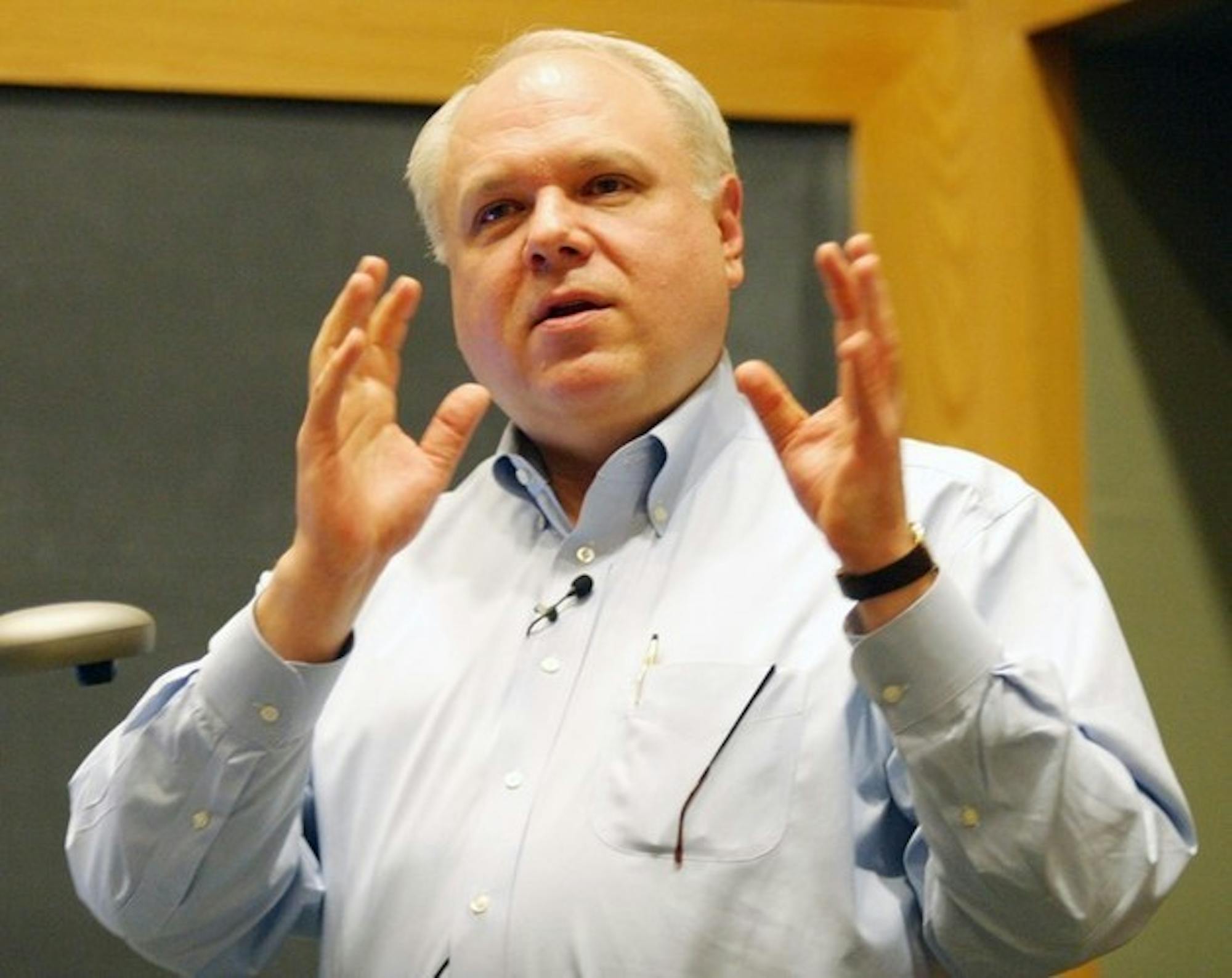His lecture, entitled "Impostor: How George W. Bush Bankrupted America and Betrayed the Reagan Legacy," was based on Bartlett's newly-published book which was released in February 2006 and led to his dismissal from the National Center for Policy Analysis, a conservative think tank.
Bartlett, who has been at the forefront of conservative economic thought since the Reagan years, helped draft the Kemp-Roth tax bill, which passed in 1981 and became one of the cornerstones of a supply-side economic policy.
He went on to work on the White House staff for President Reagan in 1987 until he moved to the Treasury Department during George H. W. Bush's administration. He then relocated to Dallas to work for the National Center for Policy Analysis.
In his lecture, Bartlett touched on how he entered the political arena, his dissatisfaction with the Bush administration, what he characterizes as the administration's unrealistic stance on the Medicare prescription bill and the extreme polarization of the political community.
Bartlett's criticism of the current administration was based primarily on Bush's economic policies.
"I was generally supportive of Bush," Bartlett said, "until the passage of the Medicare prescription bill. We were running huge budget deficits and then we were going to increase spending by trillions of dollars? It didn't make a lot of sense."
Citing the Social Security Board of Trustees report released in April 2004, Bartlett noted that projected federal spending is $68 trillion for Medicare and $11 trillion for Social Security. Even though Bartlett is one of the founding thinkers of supply-side economic policy, he said that he recognizes that as the government increases spending on welfare programs, taxes will have to increase as well.
In addition to the spending crisis, Bartlett discussed the increasing polarization emerging not only between the Democratic and Republican parties but also how this polarization has crippled open discussion within his own party.
"Behind closed doors we can talk about these things openly, but in public, people write things and take positions that are extremely partisan. It is almost like Jekyll and Hyde," he said.
When he publicly released a text critical of the current administration's policies, Bartlett was fired from his job with the conservative National Center for Policy Analysis after having been involved in the conservative movement for 30 years.
In an interview with The Dartmouth, Bartlett emphasized the need for free political discourse both between and within parties.
"The general level of political dialogue seems to be an extreme polarization," Bartlett said. "It is extremely difficult to have a conversation with someone who disagrees with you, whether they're on your team or the other team."
Bartlett also noted that this polarization leaves little space for change.
"There is a paralysis of policy development. People keep pushing the same old ideas, leaving no room for anything new," he said.
Bartlett's lecture was sponsored by the Rockefeller Center for Public Policy and Social Sciences.




